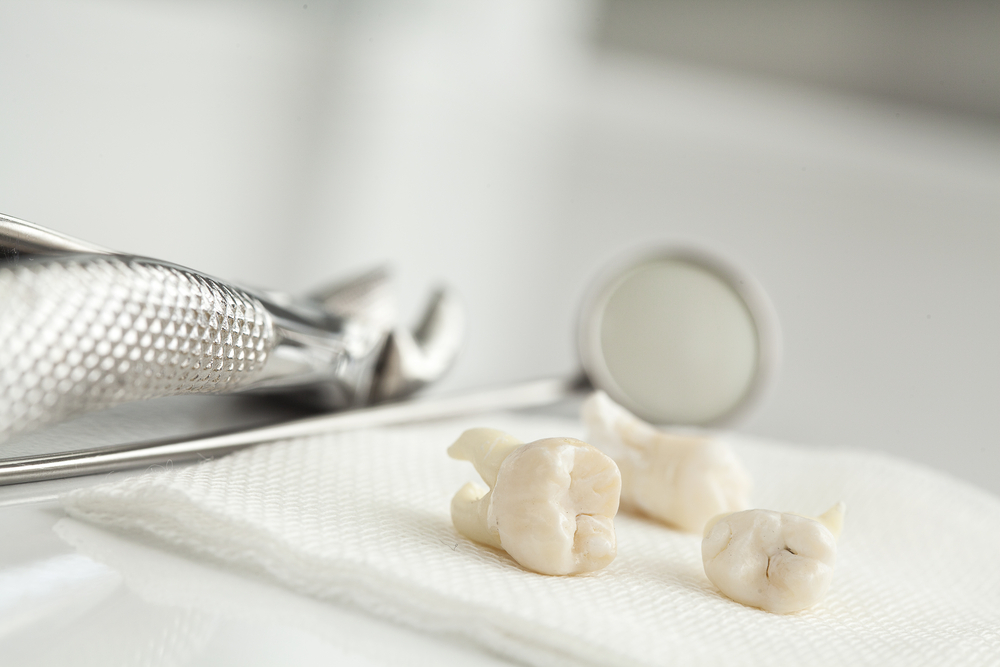Wisdom teeth, in spite of their name, don’t make people smarter. These advanced molars frequently cause excruciating pain when they burst through the gums and fill your other teeth. Even more alarming, there have been reported examples of wisdom teeth contributing to long-term, cysts, harmful cavities, sinus problems, and issues with the positioning of the jaw.
Yet, some fortunate individuals do not suffer these typical wisdom tooth symptoms and discomforts. Is having your wisdom teeth removed worth it for these people? And do all wisdom teeth need to be removed merely because oral surgery is now commonplace?
Many times, wisdom teeth will just partially erupt through the gums. The partially emerging wisdom teeth are a breeding ground for bacteria that cause gum disease and oral infections since the posterior area of your mouth is difficult to clean and notice. However, a few times, our dentist in Woodbridge might advise removing wisdom teeth that haven’t fully erupted in certain situations.
What Are Wisdom Teeth?
In case your baby teeth, your posterior third molars, are healthy, fully erupted, appropriately positioned, biting with the opposing teeth, and not interfering with your everyday oral hygiene routines, they might not need to be removed.
Unfortunately, wisdom teeth often lack enough space to grow normally. Wisdom teeth can therefore erupt at a variety of angles, including horizontally. Even if the wisdom teeth are completely hidden by the gums, they may nevertheless get impacted and remain in your jaw. A cyst from the impacted wisdom teeth may harm the bone support and roots of neighbouring teeth.
The molars (back teeth), known as wisdom teeth, are the molars that erupt last and farthest back in your mouth, typically in your late teens or early twenties. It is typical for the mouth to develop this way. Many times, wisdom teeth will just partially erupt through the gums.
When Is Wisdom Removal Needed?
Wisdom teeth must be withdrawn when they cause problems or when X-rays show they could in the future. Other justifications to remove them include:
- Harm to other teeth: Having an extra set of molars can push your other teeth into an awkward position and impact your bite.
- Jaw damage: Cysts may form around newly erupted teeth. They can hollow out your jaw and harm your nerves if they are not treated.
- Sinus issues: Issues with wisdom teeth can generate pain, pressure, and congestion in the sinuses.
- Gums that are inflamed: The surrounding tissue may expand and be challenging to clean.
- Cavities: Swollen gums can form spaces between teeth, which encourage bacterial growth and the development of cavities.
- Alignment: Impacted wisdom teeth might crowd other teeth, which may entail orthodontic practices for other teeth.
To make a choice, your dentist will consider your mouth’s form and the placement of your teeth. Your age also matters. Still not willing to give up your teeth? You might ask your dentist to describe their observations of your teeth. In many circumstances, you can postpone making a choice for a few months to see if circumstances change. But it can be necessary to obtain a second opinion if you experience discomfort, swelling, or an unpleasant odour close to your back teeth. And it can not be as painful to get wisdom tooth extractions near you as the pain you are experiencing because of the tooth.
Potential Benefits of Wisdom Teeth Removal
Your risk of developing oral health issues in the future, such as:
- Gum illness.
- Decaying teeth.
- Damage to the teeth next to it.
- Loss of bone.
- Jaw injury.
The removal of your wisdom teeth can frequently relieve pain almost immediately by your dentist near you and put you back on the path to better oral health if you already experience discomfort as a result of them.
Risks and Complications of Wisdom Teeth Extraction
Typically, removing wisdom teeth doesn’t cause any long-term issues. Occasionally, people may experience the following complications:
- Infection (pus flowing from incisions or your socket).
- Dry sockets, which occur when a blood clot is lost and exposes the bone.
- Damage to neighbouring teeth, your jawbone, your nerves, your sinuses, or other oral tissues.
What Should you do next?
Please consider visiting Humberview Family Dentistry before deciding whether to have your wisdom tooth extractions in Woodbridge if you have freshly erupted teeth and believe you will need this treatment. Our dentist’s office gives you an accurate view after taking your oral health and the position of your wisdom teeth into account.
Call us to learn more about wisdom teeth removal and its long-term advantages for oral health. Book your appointment today.

